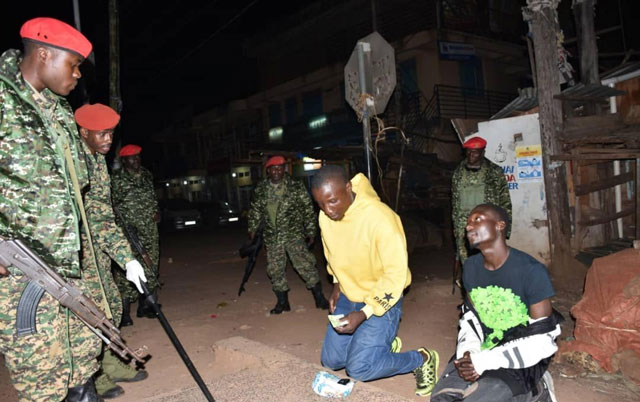
Kampala, Uganda | THE INDEPENDENT | A section of Members of Parliament from the National Resistance Movement has dismissed concerns from the opposition who claim that the night-time curfew will jeopardize the credibility of next week’s elections.
Ugandans will be heading to the polls on the 14th of January to elect a President and Members of Parliament.
The election is unprecedented and highly unusual in that most of the electoral processes including the entire campaign period has been held under restrictions on crowds and movement owing to the COVID-19 pandemic.
In addition to the crippling guidelines and Standard Operating Procedures that political candidates have to grapple with the government has maintained a night-time curfew which is part of the initial measures that were imposed in March last year to contain the spread of COVID-19. The curfew is in force from 9 pm to 5:30 am.
The opposition is concerned that vote counting and processing of declaration forms at most polling stations with big voter turnout ends after sunset, leading to suspicions that many campaign agents and voters will be blocked from witnessing the tallying and transport of votes by the security under the guise of enforcing a curfew.
However, the Bukuya County MP Michael Bukenya says the opposition should not be concerned since vote counting and tallying takes place in a protected area.
Usuk County MP and NRM flag bearer for Ngaram County Peter Owang says that every candidate has an agent who is issued with a letter that identifies them as a campaign official so there is no cause for concern about curfew and harassment by security.
The chairman of independent presidential candidate Lt. Gen Henry Tumukunde’s campaign taskforce Omar Kalinge-Nyago none the less says the Electoral Commission is being incompetent in the way it is carrying out the election exercise during a pandemic.
He notes that to avoid inconveniences where a scientific election causes tallying delays well into curfew time, the Electoral Commission should be carrying out simulations to find out how to speed up the process or extend voting to a second day.
He asserts that the Electoral Commission is either incompetent or is deliberately hoping to cause a crisis to disenfranchise voters in opposition strongholds.
********
URN
 The Independent Uganda: You get the Truth we Pay the Price
The Independent Uganda: You get the Truth we Pay the Price





